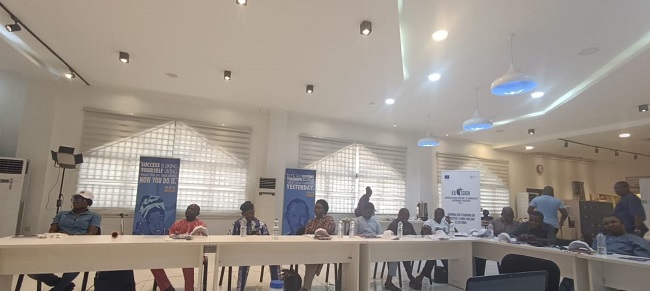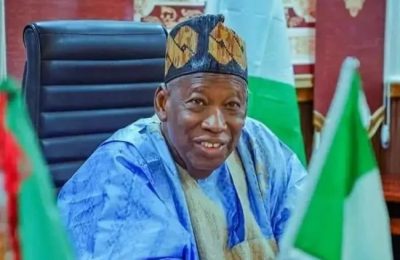
The Corporate Accountability & Public Participation Africa (CAPPA), supported by the European Union Delegation under the EU Support for Democratic Governance in Nigeria Phase Two (EU-SDGN II), has trained journalists on ‘Peaceful and Non-Violent Elections.’
The training that took place on Wednesday, at the Initiative for Information, Arts and Culture Development in Nigeria, Ibadan, Oyo State, was attended by print, broadcast, and online journalists.

The training, according to Akinbode Oluwafemi, the executive director of CAPPA, was informed by the fact that as the 2023 general election nears, there are still issues that raise the spectre of apprehension in the land and among potential voters such as the possibility of violence, deliberate misinformation and spread of fake news, vote-buying, manipulation, and voter suppression, among others, that may compromise the election outcomes.
“The way we do our job can either promote peace or incite violence,” Oluafemi added.
Recalling certain events that led up to the Nigerian civil war and the Rwandan genocide of the 90s, Philip Jakpor, programmes director at CAPPA, noted that the media played a critical role in stoking the conflicts in both countries.
Therefore, it was necessary for the media to be sensitive to how they carried out their job of reporting now that the general election is close.
He added that the choice of Ibadan for the training was strategic as the region had witnessed a political crisis in the past.
In his session on “Understanding Conflicts and Drivers of Conflicts,” Dr Tunde Akanni, an associate professor of journalism at the Lagos State University (LASU), explained that technology has fired up the use of media and has boosted the spread and speed of information.
He said it was important for professional journalists that have been exposed to the principles of conflict-sensitive journalism. He added that due to misinformation and disinformation that citizen media are prone to promote, fact-checking skills for journalists were essential.
Lanre Arogundade, chair of the International Press Centre, speaking on “Election and conflict-sensitive reporting,” noted how the media was not conflict-sensitive in reporting on the 1983 election and the attendant violence in Ondo State, and in the 2007 Kenya elections.
He discussed how journalists can be conflict-sensitive by carefully selecting words in headlines and reports, giving opposing viewpoints equal time and space, and being guided in expressing one’s own personal opinion on issues.
Aderonke Ige of CAPPA noted that the relevance of the media in the electoral process was sacrosanct.
In her presentation on “The electoral law and guide for media coverage of election resuts,” she said that “The media as a watchdog of the society should be catalysts of transparent electoral processes and credible, fair and peaceful elections.”
The final presentation of the day was by Dr Olayinka Oyegbile on “Newsroom Culture and Peacebuilding in Election Reporting.” Dr Oyegbile stressed the central role the media plays in the election process. He said accuracy, non-partisanship, neutrality, and proper agenda-setting were important roles for the media to play as the general election draws near.
READ ALSO FROM NIGERIAN TRIBUNE







